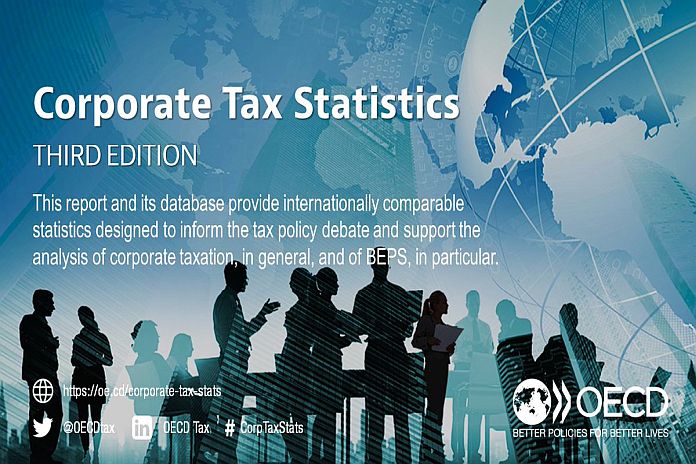PARIS, France – New data released Thursday highlight continuing base erosion and profit shifting (BEPS) risks and the need to implement the two-pillar solution to ensure that large multinational enterprises (MNEs) pay a fair share of tax wherever they operate and earn their profits.
The OECD’s latest annual Corporate Tax Statistics, covering over 160 countries and jurisdictions, includes new aggregated Country-by-Country Report (CbCR) data on the activities of almost 7,000 MNEs, representing a major boost in tax transparency efforts.
The new CbCR data show that the median value of revenues per employee in jurisdictions with a corporate income tax (CIT) rate of zero is USD 2 million as compared to just USD 300,000 for jurisdictions with a CIT rate above zero. Moreover, in investment hubs, related party revenues account for 35 percent of total revenues, whereas the average share of related party revenues in high, middle and low-income jurisdictions is around 15%. While these effects could reflect some commercial considerations, they are also likely to indicate the existence of BEPS.
The data released today also show that the corporate income tax remains an important source of revenue for most countries, especially for developing and emerging market economies. On average, the CIT accounts for a higher share of total taxes in Africa (18.8%), Asia and Pacific (18.2%) and in Latin America and the Caribbean (15.8%) than in OECD countries (9.6%).
After decades of cuts to statutory CIT rates, the new data point to a stabilisation of CIT rates in 2022 with some narrowing of tax bases in 2021, as countries sought to strike a balance between raising revenue and incentivising investment. The stabilisation of CIT rates may also be a response to the fiscal challenges faced by governments in the wake of the COVID-19 pandemic. The average combined (central and sub-central government) statutory tax rate for all jurisdictions covered in the dataset was 20 percent in 2022, compared to 20 percent in 2021 and 28 percent in 2000.
There is some evidence that governments have used the CIT system to try to boost economic recovery, by incentivising investment, especially in Research and Development (R&D).
The data point to a narrowing of corporate tax bases, driven by more generous capital allowances, with these provisions being used in 65 jurisdictions in 2021, up from 57 in 2019. The data also suggest an increase in the generosity of R&D tax provisions in 2020 and 2021 in a number of OECD countries and EU member states following the outbreak of the COVID-19 crisis.





